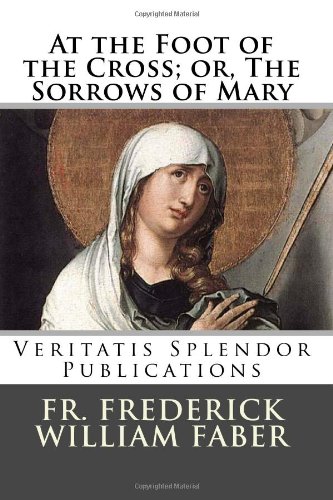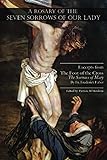All Categories



At the Foot of the Cross; or, The Sorrows of Mary
Share Tweet
Get it between 2024-12-31 to 2025-01-07. Additional 3 business days for provincial shipping.
*Price and Stocks may change without prior notice
*Packaging of actual item may differ from photo shown
- Electrical items MAY be 110 volts.
- 7 Day Return Policy
- All products are genuine and original
- Cash On Delivery/Cash Upon Pickup Available








About At The Foot Of The Cross; Or, The Sorrows Of Mary
The law of the Incarnation is a law of suffering. Our Blessed Lord was the man of sorrows, and by suffering He redeemed the world. His Passion was not a mystery detached from the rest of His life, but only the fitting and congruous end of it. Calvary was not unlike Bethlehem and Nazareth. It exceeded them in degree; it did not differ from them in kind. The whole of the Three-and-Thirty Years was spent in consistent suffering, though it was of various kinds, and not of uniform intensity. This same law of suffering, which belongs to Jesus, touches all who come nigh Him, and in proportion to their holiness, envelops them, and claims them wholly for itself... Their passions have been living shadows of the great Passion, and the blood they shed mingled its kindred stream with the Precious Blood of their Redeemer, the King of Martyrs. So with the Saints. Whether they have been bishops or doctors, virgins or matrons, seculars or religious, unusual love and unusual grace have always reached them in the shape of unusual trial and unusual suffering. They too must be drawn into the cloud, and they will come out of it with their faces shining, because they have seen, and seen closely, the Face of the Crucified. It is so in its measure with all the elect. They must stand at least within the fringes of the dark cloud, or it must overshadow them in transit, perhaps more than once, in order to secure the salvation of their souls by giving them at least an adequate likeness to their Lord. What, then, must we think of His Mother, who came nighest to Him of all? It can plainly be no wonder, if she shall suffer more than anyone but Himself. The immensity of her sorrows will neither be a distress nor a surprise to us, but rather the obvious conclusion from all we know of the grand mystery of the Incarnation. The amount of her sufferings will be the index of the magnificence of His love for her. The depth of her pains will come the nearest of all things to fathom the abyss of her love for Him. Her far-rolling sea of sorrow will measure the grandeur of her holiness. The loftiness of her Divine Maternity will raise her dolors close up to His gracious Passion. Her sinlessness will almost seem to enclose it within the same life-giving law of expiation. Her union with Him will render her Compassion inseparable from His Passion, even while for a thousand reasons it is so manifestly distinguishable from it. The Woman clothed with the Sun will be wrapped round and round with the bright darkness of that same terrible destiny, which He vouchsafed first to appoint and then to accept as the great law of His Incarnation. We must be prepared to find Mary's dolors beyond the reach of our imagination, above the possibility of our description. We can only gaze upon them with such instruments as faith and love supply, and note the beauty and the strangeness of many phenomena which we can only imperfectly comprehend. Especially can we thus increase our devotion to the Passion, many unknown regions of which are momentarily lighted up for us by the contact of her dolors, just as in the occultation of Jupiter, the luminous, tearlike planet, as it touches the dark portion of the moon, scatters a momentary line of light along the unseen edge, like a revelation, and then by its disappearance proves the reality of that which we cannot see.



















